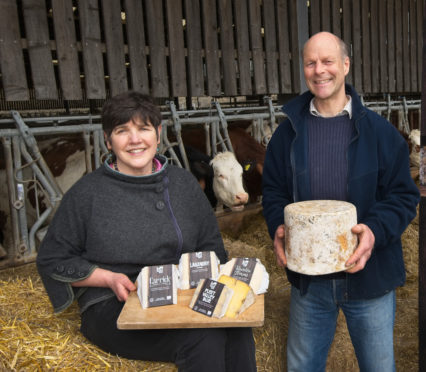Repeated calls for more scientific research into the links between livestock grazing and carbon sequestration were made at Scotland’s first “ethical” farming conference.
The event, held on an organic dairy farm in Galloway, heard from American, English and Scottish farmers who have put soil health, biodiversity and animal welfare at the heart of their businesses and are now reaping the productive and economic rewards.
Against the background of the UN’s recent report on devastating biodiversity loss, and the call for more sustainable, regenerative and ecological farming, Cotswolds dairy farmer Rob Richmond told delegates it was time science caught up with the work many farmers are already doing to benefit soil health and biodiversity.
“We need to know what’s going on and get actual true measures on properly managed and grazed pastures,” he said.
“There is a huge lag between the reality of what farmers are doing really well and the reality of what science can measure.”
His views were echoed by SRUC soil scientist Professor Christine Watson, who added the science should be done in conjunction with farmers.
“We have brought farmers into the process far too late,” she said.
“We need to involve farmers right from the start of the research but it requires different funding models and a willingness and openness from farmers and scientists.”
Mr Richmond, who has been farming organically for 12 years and has an antibiotic-free dairy herd, described how his soil health and mineral balance had improved in that time and how his farm has been turned from a “wildlife desert” to having huge amounts of insects, beetles and flocks of birds across the pastures.
He added: “For all that I’ve done has been production orientated in order to run a productive organic system, we’ve ticked a lot of the environmental, holistic and sustainable boxes along the way.”
Conference co-host Wilma Finlay said many farmers, particularly in the less favoured areas, were already farming ecologically or could transition to agri-ecological farming relatively easily.
She said: “There has never been a more important time to address these complex issues and there is a clear opportunity for Scotland to take the lead in incentivising ecological farming; pioneering a pasture-based, regenerative approach that is as sustainable as it is productive.”
The Finlays, who produce organic ice cream and “ethical” veal from dairy calves that are left with their mothers, said they wanted to share the data, experiences and results of their style of farming system with the wider industry to help kick-start the debate on how food production should go forward.
nnicolson@thecourier.co.uk










